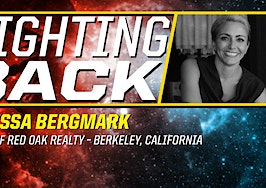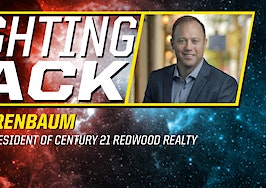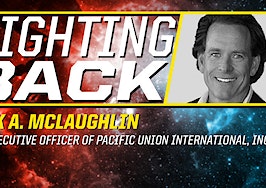
Philip Faranda
This is part of “Fighting back,” a new series of profiles on how broker-owners are responding to industry disruption.
J. Philip Faranda is broker and owner of J. Philip Real Estate in Briarcliff Manor, New York, which he founded in 2005.
The firm is, by transaction total, the top-selling true independent Westchester, New York, and Putnam-based brokerage. An industry veteran since 1996, he built the firm from a solo practice into a three-office, 80-agent enterprise.
What is your no. 1 asset in this environment?
Agility. The shifting sands of market forces, consumer attitudes and moves our competitors execute make it necessary to not be married to one way of doing things.
When the market crashed, we did a ton of short sales. When it rebounded, we recruited and trained new agents.
In surveying our agents and asking why they are loyal to the brand, they’ve leapfrogged over “culture” and said the same word often: family. That is humbling.

How do you leverage what you have?
We have provided a ton of resources for the agents for years, all too often underutilized. Then, we started charging them a monthly tech/resource fee. Suddenly, with skin in the game, adoption spiked.
Instead of trying to compete with big flags, we held ourselves out as a better, specialized alternative to cookie-cutter brokerage.
We are always reminding the agents that they are in on the ground floor of something special. They are pioneers, early adopters of a brand that is going somewhere.
That said, extraordinary people are simply folks who do ordinary things with excellence — we are strong on social, strong on known for being independent and effective, and we never shut up about that to both our sphere and anyone who might google us.
We also remind both prospective agents and clients that the superiority of the national brand is a myth. Real estate is such a complicated and infrequent transaction that trust with it belongs with the specialist, not the generalist.
You don’t get married at TGI Fridays. You don’t buy a wedding dress at Walmart. You don’t have your gall bladder removed at an urgent care franchise. It should be the same with a real estate transaction. The letterhead is subordinate to the credentials of the human in front of you.
What new things must you do to compete?
Pay attention. Maintain high standards, never take shortcuts. Live in a continuous inquiry about how to get better.
Never be formulaic. Never think you have it figured out. Keep on the lookout for emerging niches and new opportunities
When you do something right or well, don’t keep it a secret.
Are acquisitions the way to fend off change?
Acquisitions are either an exit strategy or a means of growing. Always looking for the Louisiana Purchase in our market, that acquisition that will catapult us further forward than mere trench warfare of bean counting the transactions.
Change itself has to be kissed on the mouth and invited to Sunday dinner, otherwise you fall behind.
Do you explore alternative business models yourself?
Yes. There is opportunity in seeing what weaknesses an alternative model seeks to capitalize upon. Unfortunately, most other models are simply trading on lower cost or variants of unbundling, neither of which is a threat to taking our market share.
Our ears remain to the ground for black swan events or innovation that could change the game.
Does your technology strategy change?
No, in the sense that the tech strategy has always been to have tech, not for tech to have us.
To the extent that tech makes us better with the humans we serve, we use it as a tool. Tech has never been, nor will it ever be, our business model.
If we find a better mousetrap and the psychic cost of adoption is overall better than status quo, we’ll make a change, but we’ve been lucky in that we’ve chosen vendors with whom we’ve “grown up” together.
A good example is Zillow. We were the first brokerage in our market to syndicate in 2006, paying a third party even before Zillow formulated its pay model. That factored in getting through the crash.
The democratization of tech tools has enabled us to remain independent and appear far more appealing to the consumer than we could have in the analog era.













